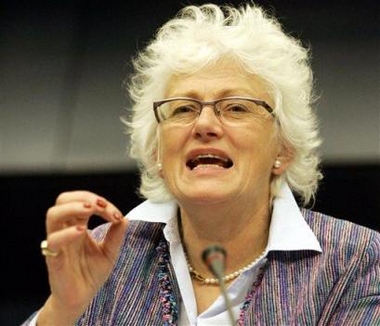|
EU strikes landmark sugar reform deal
(AP)
Updated: 2005-11-25 09:39
The European Union agreed on a major overhaul of its sugar subsidy program
Thursday, cutting prices by 36 percent in a landmark deal that the EU said will
strengthen its hand in upcoming world trade talks.
"I know I'll be in a much better position for the negotiations in December,"
said EU Agriculture Commissioner Mariann Fischer Boel, referring to the world
trade talks in Hong Kong.
She told reporters the agreement reached after three days of arduous talks
"complies completely" with World Trade Organization rules and the EU said it
would effectively end its dumping of cheap sugar on the world market.
However Caribbean producers decried the deal which will phase out their
preferential access to Europe's high-price market.
"They have clearly looked after (their) own farmers and left us in the cold,"
said Ian McDonald, director of the Sugar Association of the Caribbean in
Georgetown, Guyana. "This is devastating news."
Britain's Farm Minister Margaret Beckett, who chaired the talks, said the
decision to overhaul of the EU's 40-year old sugar subsidies marked "a historic
day," but acknowledged that implementing the reform would be tough for many
countries.
"It was a decision of considerable difficulty and complexity," she said.
"Every member state faced problems."
There was no immediate reaction in Washington, where government offices were
closed for the Thanksgiving holiday.
U.S. food companies have long pressured the government to give them access to
cheaper sugar from other countries, proposals fiercely resisted by members of
Congress from sugar-producing states.
The U.S. government, seeking to protect its farmers and processors while
ensuring a steady supply, limits imports and restricts how much sugar can be
sold domestically.

EU Commissioner for Agriculture and Rural
Development Mariann Fischer Boel addresses the media at the end of a
three-day long EU Agriculture Council at the European Council Headquarters
in Brussels, Thursday Nov. 24, 2005.[AP] | Reform
of the sugar sector is a highly sensitive issue and will cause job cuts at
refineries and force many farmers to stop growing sugar beet and sugar cane.
There are more than 325,000 sugar beet farmers in the EU.
Under the reform, Ireland will be forced to shut down all its sugar beet
production due to quota cuts, while Italy will give up half of its production
quotas in exchange for millions of euros (dollars) in aid for farmers
Other countries will also have to make deep cuts. Finland will close one of
its two refineries, said Finnish Agriculture Minister Juha Korkeaoja.
While no vote was taken at the end of the talks, Poland, Greece and Latvia
remained vehemently opposed to the compromise, arguing the reform was unfair for
their producers.
The EU has come under increasing pressure from its trade rivals to follow
through on WTO demands it do away with its protected sugar market pricing
system.
A successful WTO challenge by Australia, Brazil and Thailand forced the EU
into the cuts to its subsidy system.
To persuade nations that opposed the initial reform plan, Beckett and Fischer
Boel presented a compromise that boosts compensation to farmers and industry to
ease the pain of the cut in prices and quotas.
Under the old system, production was supported by generous EU subsidies and
import tariffs that guaranteed and inflated price for sugar. That will now be
phased out over four years starting in 2006.
Farmers and industry will benefit from a 6 billion euro ($7 billion)
compensation fund to get out of the sugar business, or to diversify the end use
of sugar beets, for such uses as bioethanol for example.
Farmers were not placated. "The reform is too drastic and ... it will wipe
out production for many growers," said a statement from COPA-COGECA, umbrella
groups that represent Europe's 15 million farmers.
EU sugar prices are more than three times higher than the global market rate.
Brussels also pays out export subsidies to get millions of tons of sugar a year
off its market.
The changes will render the EU a net importer of sugar. Most imports will
likely come from a group of the poorest African producers, the EU said. They
will get tariff and duty free access to the EU's sugar market from 2009, under a
separate aid-and-trade deal.
However, other African and Caribbean producers will see their preferred
access to EU markets at inflated prices phased out. The EU has offered them 40
million euros ($47 million) to help cushion the impact, but Caribbean reaction
was furious.
"They are taking from the poor and giving to the rich," said George Bullen, a
spokesman for several small Caribbean states. "This is outrageous."
Bullen said Caribbean leaders will take the fight to the WTO talks in Hong
Kong.
|